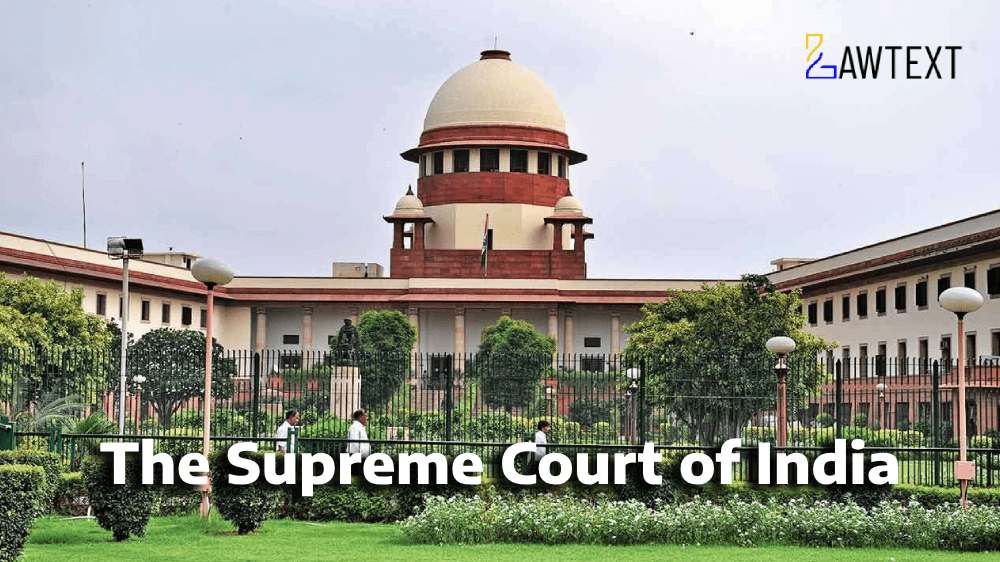Appeal for Criminal Convictions Under Sections 148, 302, 307 IPC Supreme Court affirms convictions of three accused for murder and attempted murder, upholding life sentences based on the principles of common intention and evidence of injured witnesses.

CASE NOTE & SUMMARY
The Supreme Court dismissed an appeal by three accused challenging their conviction and life sentences under Sections 148, 302, and 307 of the Indian Penal Code (IPC). The Court rejected arguments against the reliability of eyewitnesses and found that common intention to commit murder was established based on their conduct and circumstantial evidence. The Court upheld the conviction and sentencing of the accused, finding no error in the lower courts' judgments.
Introduction:
- Appeal: Criminal Appeal No. 1389 of 2012 before the Supreme Court, filed by four appellants against the conviction order dated 4th May 2011 by the Punjab and Haryana High Court.
- Offences: Appellants convicted under Sections 148, 302, 307 IPC, and Section 27 of the Arms Act. A-1, A-2, A-3 were also convicted under Section 34 IPC.
Facts:
- Altercation: The case stems from a minor altercation on 12th December 1997, where A-1 accidentally injured victim P.W.3, leading to a fight between the two.
- Attack: A-1, A-2, A-3, along with A-4, returned armed with a gun and sticks to assault P.W.3 and others, resulting in the deaths of two victims and injuries to others.
Investigation & Trial:
- FIR: First Information Report was filed for attempted murder, and later murder charges were added as two victims died from injuries.
- Trial Court: The appellants were convicted and sentenced to life imprisonment for murder and attempted murder.
Submissions by the Appellants:
- Common Intention vs. Common Object: Counsel argued that the High Court erred by convicting them under Section 34 IPC, claiming no premeditated common intention.
- Witness Reliability: The appellants challenged the reliability of the witnesses, arguing that the absence of brick-batting injuries disproved their presence at the crime scene.
Supreme Court's Analysis:
- Common Intention: The Court ruled that common intention can form quickly and does not require prior planning, as inferred from the conduct of the appellants.
- Eyewitness Testimony: The testimonies of injured witnesses, P.W.3, P.W.4, and P.W.5, were deemed credible despite minor inconsistencies.
Legal Discussion:
- Common Intention (Section 34 IPC): Reaffirmed that common intention can develop on the spot, and direct evidence of prior agreement is not required.
- Failure of Justice (Section 464 CrPC): The Court found no miscarriage of justice or prejudice against the appellants in framing charges or the application of Sections 34 and 149 IPC.
Conclusion:
-
Appeal Dismissed: The Court upheld the life imprisonment sentences, affirming the lower courts' findings of guilt under Sections 148, 302, and 307 IPC.
Acts and Sections Discussed:
- Sections 148, 302, 307, 34, IPC: Related to rioting, murder, attempted murder, and common intention.
- Section 27 of the Arms Act: Pertaining to the illegal use of firearms.
Ratio:
The Court emphasized the significance of injured witnesses' testimonies, the concept of common intention, and the doctrine of constructive criminality under Section 34 IPC. It ruled that common intention can develop in the heat of the moment, and the evidence demonstrated the appellants' intention to commit murder and grievous assault.
Subjects:
- Criminal Law
- Murder
- Common Intention
- Eyewitness Testimony
- Supreme Court Judgment
ISSUE OF CONSIDERATION
BALJINDER SINGH @ LADOO AND OTHERS VERSUS STATE OF PUNJAB
Citation: 2024 LawText (SC) (9) 255
Case Number: CRIMINAL APPEAL No. 1389 OF 2012
Date of Decision: 2024-09-25
Case Title: BALJINDER SINGH @ LADOO AND OTHERS VERSUS STATE OF PUNJAB
Before Judge: (DIPANKAR DATTA J. , AUGUSTINE GEORGE MASIH J. )
Appellant: BALJINDER SINGH @ LADOO AND OTHERS
Respondent: STATE OF PUNJAB

